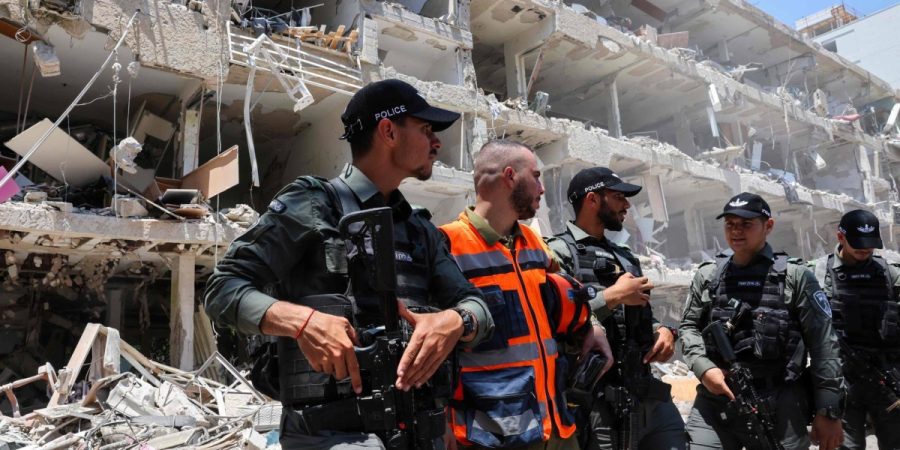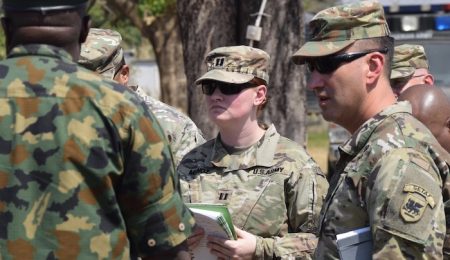Following weeks of high-intensity, technologically advanced warfare between Israel and Iran, Prof. Adewumi Falode, a scholar of History and International Studies at Lagos State University (LASU), has stated that a pause in hostilities does not necessarily signal the end of the conflict.
Falode made this assertion during a symposium organised by the LASU Centre for Peace and Security Studies, themed, ‘The Israeli-Iranian War, 2025: Issues and Implications’ held at the university which saw other experts in International Relations also contributing to the discussions.
His assertion is coming just a few days after US President Donald Trump announced via social media on Monday evening that Israel and Iran had agreed to a ceasefire, bringing a temporary halt to nearly two weeks of escalating airstrikes by both nations.
Leading the discourse, Falode, who is also the Director of the Centre, explained that the concept of victory varies between states.
He emphasised that what Iran may perceive as a victory could differ significantly from Israel’s definition of the same.
According to him, “They say they are interested in stopping Iran from building a nuclear weapon. Why? If Iran acquires a nuclear bomb and America already has one, America stands to lose more compared to Iran.
“That’s why it’s called mutual assured destruction. The US has more to protect. That’s the point. Once a state possesses nuclear capability, it gains strategic security.
“Why didn’t they do to North Korea what they are doing to Iran? Because they can’t. If North Korea is attacked and manages to launch even one missile, the consequences would be catastrophic. Having a nuclear weapon is not the same as having a delivery system. If you build a bomb, like North Korea did, but don’t have a reliable delivery system, it’s useless. And if you have missiles, like Iran does, but no nuclear warheads, that’s also useless.”
Falode further stated, “That’s why Iran is collaborating with North Korea. Iran helped North Korea develop its delivery systems, and now North Korea is sharing nuclear technology with Iran. So, if Iran develops a nuclear bomb, they already have missiles capable of delivering it.”
Also speaking at the event, Prof. Abolade Adeniji from the Department of History and International Studies questioned Iran’s apparent lack of open support from allies during the conflict.
He noted that the world remains largely unipolar, dominated by the United States, and pointed out that even Iran’s neighbouring countries appeared to tacitly support Israel’s actions.
“Why doesn’t Iran have a friend? Why doesn’t it have an ally? For goodness’ sake, it’s the 21st century. When you fight a war, you should be able to count on at least three to five countries that will back you up. You can’t achieve all your goals alone. You need friends, friends who will stand with you and stand for you when it matters most.”
Adeniji also warned that while US support for Israel may seem firm, it remains speculative and could be viewed as abusive interference. Despite the ceasefire, he argued that the war might not be over, pointing out that Israeli Prime Minister Benjamin Netanyahu’s broader objective of regime change in Iran had not yet been fulfilled.
Speaking further on the role of the United States, Adeniji criticised what he described as the unlawful detonation of military strikes and disregard for international law.
“The realist school of international relations does not believe in niceties like international law. It’s about the ‘might is right’ principle,” he explained.
“What the US did, if a smaller country had done it, it would have faced sanctions. But the US is a superpower. They know they can get away with many things,” he said.
He continued, “Was Russia right to invade Ukraine? These are questions the world powers conveniently ignore when they act. The US claims that Iran might have weapons of mass destruction and might use them, and based on that speculation, they take action. But everything is speculative. First, we don’t even know if Iran has such weapons. Even if they do, who says they will use them against the US? Yet, because of their global position, they believe they can act unilaterally.”
Oluchi Chibuzor
Follow us on:



